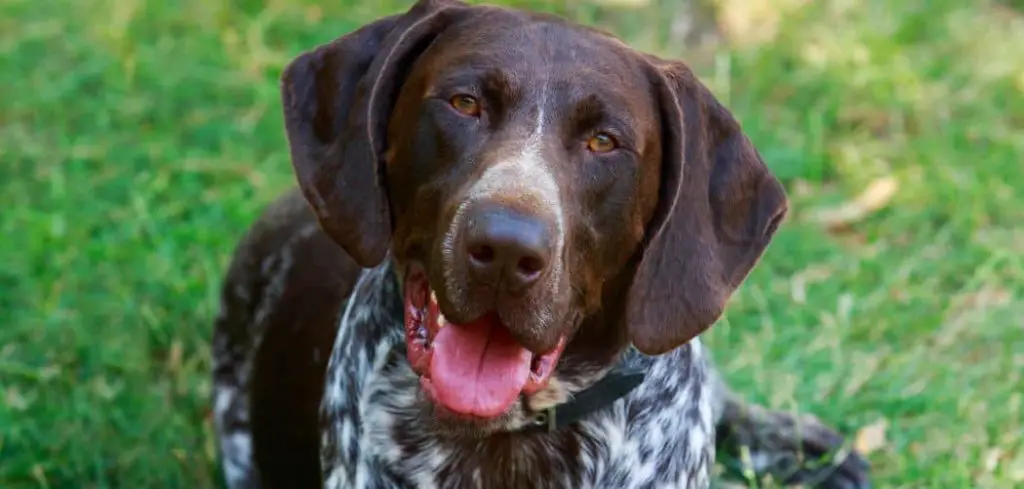It’s deeply distressing to see your dog struggling to breathe, especially when they appear to be panting for air.
This type of labored breathing can signal anything from heat exhaustion to a life-threatening condition, and knowing how to respond is vital.
We outline the common reasons why your dog may be panting for air, what you can do at home, and when to seek veterinary help.
Dog Panting for Air — Why It Happens
Panting for air usually means your dog isn’t getting enough oxygen or is trying to cool down rapidly. This can happen with heatstroke, respiratory infections, allergic reactions, or issues like heart failure and lung disease.
Sometimes, pain or anxiety may also trigger frantic breathing. The urgency depends on what’s causing the panting and how long it lasts.

Common Reasons Why Your Dog May Be Panting for Air
Heatstroke
Dogs don’t sweat like humans. They rely heavily on panting to regulate body temperature.
If your dog is exposed to hot environments without enough ventilation, they may develop heatstroke.
You’ll notice rapid panting, drooling, red gums, or even vomiting. As the body overheats, organs can fail and breathing becomes increasingly labored.
Panting for air in this context is an emergency and should never be ignored.
Heart Disease
Heart conditions reduce the heart’s ability to circulate oxygen-rich blood.
Dogs with congestive heart failure may pant excessively, especially during exertion or when lying down. You might also notice coughing, fatigue, or a bloated abdomen.
In these cases, panting for air may reflect fluid buildup in the lungs — a serious and potentially fatal complication.
Related: Dog panting excessively (Causes and What To Do)
Respiratory Infections or Pneumonia
Upper or lower respiratory infections can restrict airflow.
Dogs may cough, wheeze, or sound congested. They’ll often breathe through their mouth and appear to struggle for air.
These infections can come on suddenly and worsen quickly, especially in puppies or senior dogs.
Allergic Reactions
Sudden exposure to allergens like bee stings, food, or medications can cause anaphylaxis.
Dogs may pant frantically, develop facial swelling, vomit, or collapse. This type of panting for air happens because the airway begins to close.
Immediate veterinary attention is essential in suspected allergic reactions.
Laryngeal Paralysis
This condition mostly affects older dogs, especially large breeds.
It involves weakening of the larynx muscles, which prevents the airway from opening fully during breathing. These dogs often make a harsh, raspy sound when panting, especially after exercise.
Without treatment, this can progress to life-threatening airway obstruction.
Pain or Anxiety
Dogs in pain — whether from injury, internal illness, or surgery — may pant for air as a coping mechanism.
Similarly, anxiety or panic attacks can mimic respiratory distress. Noise phobia, separation anxiety, or a stressful event (like travel or vet visits) might trigger heavy panting, drooling, or pacing.
In both cases, while not always life-threatening, the panting may still require intervention if prolonged.
What to Do If Your Dog Is Panting for Air
Start by getting your dog into a cool, quiet environment with good airflow.
Offer water but don’t force them to drink. Avoid feeding them or giving medications unless prescribed by your vet.
Observe their gums — pale or blue gums suggest poor oxygenation and require urgent care.
If panting eases after rest and cooling, monitor them closely. But if it continues or worsens, don’t delay — breathing issues escalate fast.
Record any other symptoms (coughing, collapse, bloating) to help your vet diagnose accurately.
If your dog has known health issues like heart disease, call your vet for guidance even if the episode seems mild.
When to Call or Visit Your Vet
If your dog’s breathing looks forced, shallow, or is paired with unusual posture (like neck stretching or flaring nostrils), seek help immediately.
Blue, grey, or pale gums are a red flag.
Sudden onset of panting after a bee sting, new food, or medication should be treated as an emergency.
Likewise, if your dog collapses, becomes disoriented, or shows signs of extreme lethargy, call your vet or head to the emergency clinic.
Don’t wait for symptoms to improve on their own. Breathing problems progress quickly in dogs.
Read more: Dog Panting on Airplane (Is your dog in respiratory distress?)
Key Takeaway
Panting for air is never a symptom to brush off.
It could mean your dog is overheating, in pain, allergic to something, or suffering from a heart or lung issue.
Move quickly, observe their symptoms, and don’t hesitate to get professional help.
Acting early can save your dog’s life — and bring you peace of mind.
